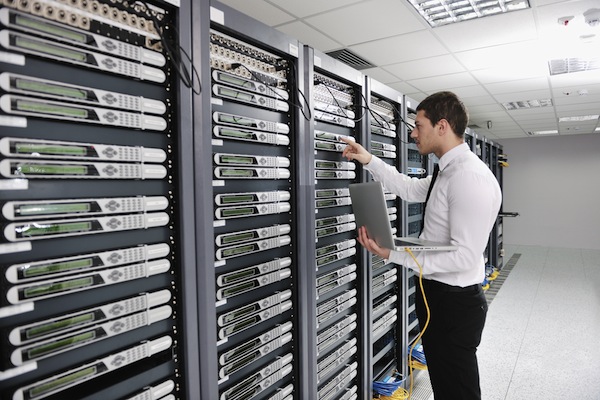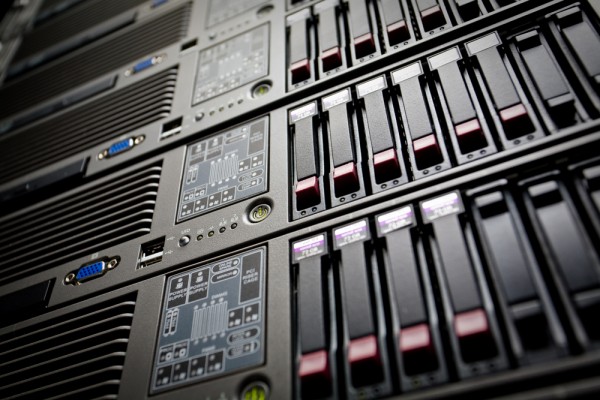
Back up unlimited devices anytime, anywhere with Carbonite Business
The popularity of the Bring Your Own Device (BYOD) model has raised a lot of questions about security and the cloud, and firms embracing the trend also have to worry about what might happen to important data if a laptop, tablet, or smartphone gets stolen, lost, or broken while an employee is away from work.
It doesn’t matter how careful people are, accidents will always happen. According to a recent study by SquareTrade, over 30 percent of iPhones have been damaged in some way. Deaths by misadventure include being dropped in the toilet (9 percent), put in the washing machine (5 percent), and being left on the roof of a car prior to the driver making a quick getaway (6 percent). In the case of BYOD hardware, the loss of data is usually more worrying that the loss or destruction of the device itself.

The cloud is still the safest place to be for small-to-medium businesses
Cloud security has been a hot topic in the news lately. While most of the hacks reported in the press have affect consumers and popular free services, there’s no question that some businesses will be concerned, in the light of all these negative reports, about just how safe their off-site data actually is. It’s one thing for an individual like Mat Honan to lose his digital identity, but if a business loses the data it has stored in the cloud (or worse still, if it should fall into the wrong hands), that can have truly catastrophic consequences, both in terms of monetary loss and damage to reputation.
The perceived risk of cloud storage might have some small-and-medium businesses rethinking their strategy and looking to return to the old days of just backing up locally. But doing so could actually put company data at far greater risk. If the firm’s servers fail as a result of a cyberattack or a natural disaster, it’s going to be much harder to affect a speedy recovery.

Why aren't you mobilizing your business in the cloud?
Is your business cloud-ready? More importantly, are you using the cloud to mobilize your business? Mobile connectivity has become crucial to businesses, and in many cases a necessity. While on the road, it's important for your employees to have access to their email, mission-critical business applications, and the Web itself.
A recent study by research firm SMB Group showed that small-and-medium businesses are looking to mobilize, not only increase productivity but save money. Forty-four percent of all respondents said the ability to work from the field was a driving force in their mobile business strategy, while one-quarter say the ability to make decisions faster was a key factor.

Painless IT administration is easier than you think
IT administration can be a daunting task, and require hours of additional work to ensure a deployment is operating properly and at peak efficiency. Oftentimes, administrators are faced with overly complex administration software that takes months or even years to figure out.
Worse yet, this software is "built in the bubble"; that is, developers create the platform based on what they think the administrator needs rather than what he or she wants. This results in software that does not mold to the needs of its users, and further adds to its complexity.

Intel rises to the cloud
Cloud computing presents both challenges and opportunities for personal computing giants. Microsoft is "re-imagining" Windows for cloud-connected devices. Meanwhile, Intel rethinks its microprocessor strategies for mobile devices and servers, seeking to embrace the cloud at both ends of the consumption supply chain. For these incumbents that defined the personal computing era, the post-PC era future requires leaping from the past, not clinging to it.
Where the "Wintel" marriage is likely to remain strongest is the server. Microsoft's post-PC -- what I call cloud-connected device -- strategy is two-fold: Providing direct, hosted services or applications businesses can host internally and expanding Windows' support for additional chip architectures. For its part, Intel develops microprocessors for more device categories, while optimizing server chips for cloud applications and services, such as the recently announced Xeon processor E5-2600 product family.

Datacenter density is your destiny
In `80s classic movie "Back to the Future", young George McFly approaches Lorraine Baines and flubs his introduction. Meaning to say "I'm your destiny", McFly nervously utters: "I'm your density". For business of all sizes, density is their destiny as they look ahead to the post-PC era and either acquiring or outsourcing massive datacenter capacity.
The three years ahead will be tumultuous, as businesses look to balance converging and contradictory priorities as they rush to the cloud, or sometimes not. Any organization offering connected services -- whether to employees, business to business or business to consumer -- must think about expanding density as their destiny. Should they consolidate server capacity through virtualization, build datacenters or outsource capacity to cloud providers such as Amazon and Microsoft? There is no stock answer, because businesses' different sizes, global or local reach, IT budgets or operational needs vary so vastly. But there are trends that will hugely affect decision-making.

Dell wants to find 'America's favorite small business' [sponsored]
There are nearly 27.3 million small business in the United States -- the majority farms or sole-proprietorships, which have no payroll employees, according to the US Census Bureau. There are 5.9 million small businesses with payrolls, and 3.62 million employ fewer than five people. Are you one of them?
The continuing economic crisis is causing more small businesses to close and the survivors aren't able to hire at pre-2008 levels. Companies with fewer than 20 employees generated only 38,000 net new jobs in fourth quarter 2010, according to the Small Business Administration (those are the latest stats available). Many small businesses are finding that they can't replace aging computers, phones and other devices or invest in tech that could make them more competitive. Is your business among them?
